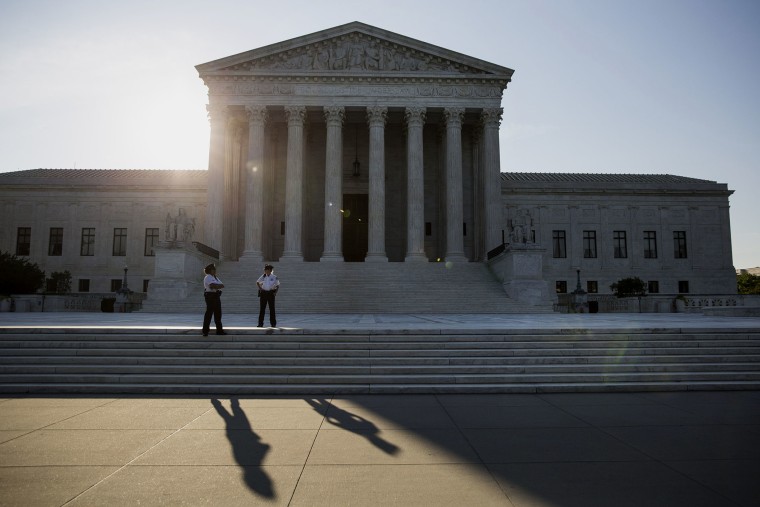The Supreme Court will hear oral arguments this morning in an important voting-rights case that the political world should probably be paying more attention to. There's a serious angle and a less-serious angle to this case, and I'm inclined start with the former. (The less-serious way, which we'll get to in a minute, involves unicorns, so stick with me.)
The case is
Evenwel v. Abbott, which as
The Nation's Ari Berman
explained the other day, is ultimately about the fundamental principle of "one person, one vote." The
New York Times' Adam Liptak
summarized this morning:
What is clear is that the principle requires voting districts of very close to equal populations, but the court has never resolved what is the relevant population: Should voting districts have the same number of people, or the same number of eligible voters? People who say everyone should be counted contend that the Constitution requires or at least permits "representational equality," with elected officials tending to the interests of the same number of people, whether they are voters or not. People on the opposing side say that voters rather than bystanders must have the determinative voice in a democracy.
Berman's piece, which explained the history extremely well,
added, "The plaintiffs want legislative lines to be drawn based on eligible or registered voters instead of total population as measured by the US Census Bureau, thus not counting children, immigrants (documented and undocumented), prisoners, and other nonvoters."
Why is this distinction so important? Because if the Supreme Court rules that roughly-equal legislative districts should be drawn based on the number of eligible voters, instead of the number of people, it has the practical effect of shifting political power away from cities (which tend to be more progressive and more diverse areas) and towards rural areas (which tend to be more conservative and less diverse).
The outcome of this case, in other words, is going to matter.
The more outlandish part of the case has to do with, of all things, its plaintiffs.
Mother Jones had an
interesting piece the other day explaining that those who helped bring the case to court are "an unusual pair."
One is a Texas tea party activist who has promoted a conspiratorial film suggesting President Barack Obama's real father was Frank Marshall Davis, a supposed propagandist for the Communist Party. The other is a security guard and religious fundamentalist who believes the Earth doesn't revolve around the sun and that unicorns were real.
No, that's not a joke.
These plaintiffs were reportedly recruited by Edward Blum, the director of the Project on Fair Representation, a non-profit group "
funded by secretive conservative donors," which has spearheaded the litigation. If Blum's name sounds familiar, it's because he played a role in the court fight against the Voting Rights Act the Supreme Court heard a couple of years ago.
In the Evenwel case, a lower court rejected Blum's argument, concluding it's based on "a theory never before accepted by the Supreme Court or any circuit court." That may soon change.
Oral arguments at the Supreme Court will be held this morning, with a ruling expected in the summer.
